
From peace dove to war hawk: Macron’s transformation over two years of full-scale war in Ukraine
The French president was the only Western leader to speak with Russian leader Vladimir Putin after Russia invaded Ukraine, believing in diplomacy. Now he suggests that sending combat troops to assist Ukraine ‘could not be ruled out’
The coming days will be crucial for Ukraine, French President Emmanuel Macron said after a meeting on February 7, 2022 with Russia's Vladimir Putin.
The 5-hour-long marathon talks were meant to deescalate tensions as Russia has massed 100,000 along Ukraine’s border, just two weeks before Russian troops entered Ukraine. However, the meeting failed to produce any result.
“Right now the tension is increasing and the risk of destabilization is increasing. The next few days will be decisive and will require intensive discussions, which we will pursue together,” Macron told reporters.
Putin said Russia was not planning an invasion but could take unspecified military action if its security demands are not met.
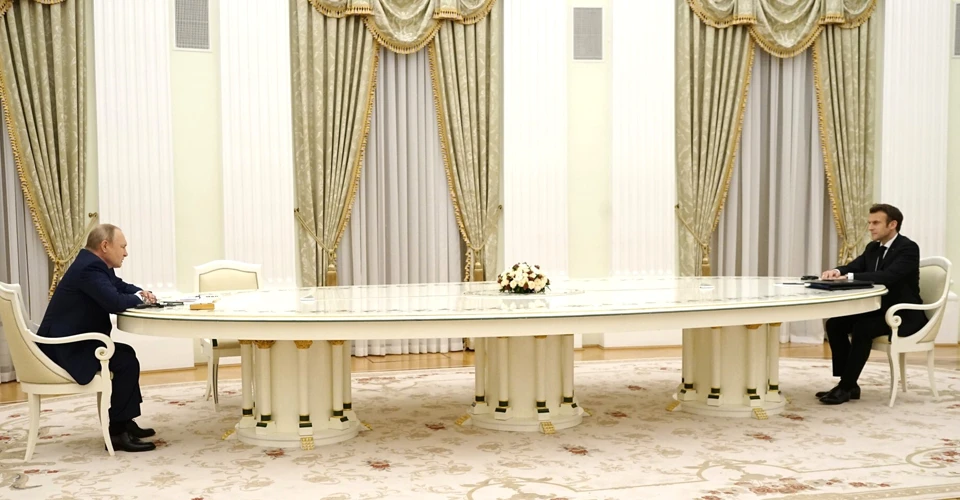
Apart from face-to-face meeting, Macron and Putin often spoke on the phone. There were 5 phone talks in February 2022, including the conversation just days before the Russian invasion of Ukraine – on February 20, 2022.
Analysts described that phone conversation with Russia's Putin as a “last ditch” diplomatic bid to avert the war amid White House warnings of an attack “at any time”. The conversation lasted 105 minutes and the details were later released in the documentary “A President, Europe and the War”, by Guy Lagache.
The French president began the conversation, straightforwardly: “I would like you to first give me your reading of the situation and perhaps in a fairly direct way, as we both do, to tell me what your intentions are.” he said. “What could I say? You see for yourself what’s happening,” Putin replied.
After that, Putin accused Ukrainian President Volodymyr Zelenskyy of "lying" and Macron himself of wanting to revise the Minsk agreements.
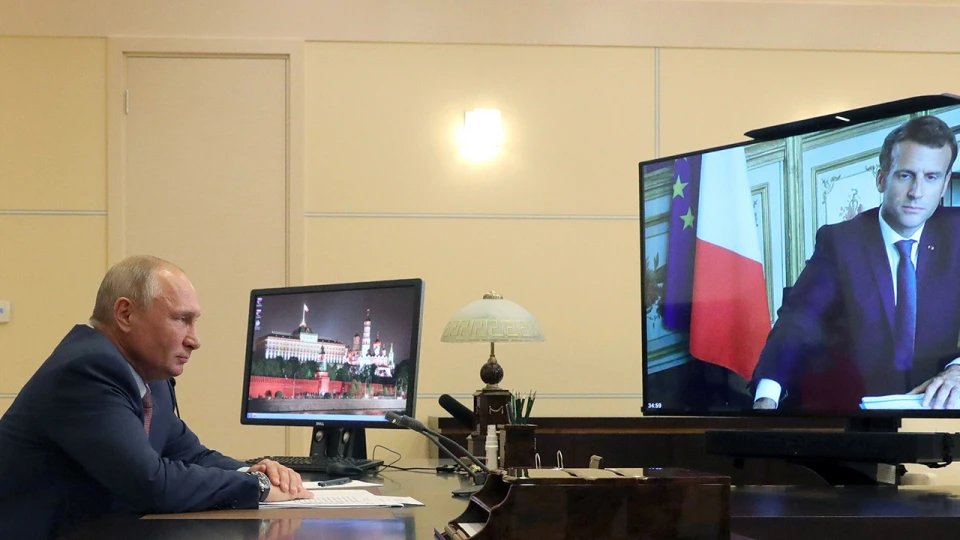
Eventually, Putin agreed to Macron's proposal to meet with US President Joe Biden, but insisted that no date for the summit be set yet, as it needed to be prepared. The conversation ends with Putin's words:
“To hide nothing from you, I wanted to go play ice hockey. I'm talking to you from the gym,” he replied to Emmanuel Macron, who had just proposed a meeting with Joe Biden.
Only Western leader in consistent public contact with Putin
In the days that followed, Macron talked to Putin on February 24, then on February 28. The March 3 conversation was the most tense, and a senior French official said it left Macron convinced that “the worst is yet to come” and that Putin aims to take control of all of Ukraine.
“At this point, Putin refuses to cease his attacks on Ukraine. Maintaining dialogue to avoid human tragedy is absolutely essential. I will continue my efforts and contacts,” Macron wrote on Twitter that day.
The French leader had not talked to the Russian president since evidence emerged of mass killings of civilians by Russian forces in the Ukrainian town of Bucha, near Kyiv.
Macron re-established telephone contact with Putin on May 3, 2022. In a phone call the French president stressed the extreme gravity of the consequences of Russia’s war in Ukraine, and called on the Russian leader to allow evacuations from the Mariupol steel plant.
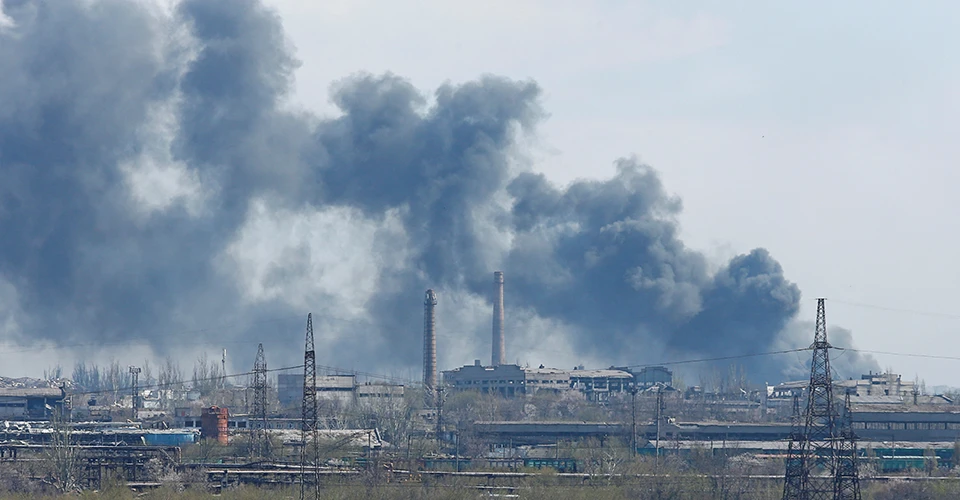
“I have called on Russia to live up to its international responsibility as a UN Security Council member by putting an end to this devastating attack,” an Elysee statement quoted Macron as saying.
Gradually, the French president called the Russian counterpart less and less, and finally stopped mediating between him and the West in September 2022, when a conversation about protecting the occupied Zaporizhzhia nuclear power plant from attacks ended in nothing.
Recently, Volodymyr Zelenskyy said in an interview with Le Monde: "Macron felt that Putin had deceived him personally."
"Putin gave his word to certain leaders that there would be no large-scale invasion, just a few days before the war. That's why Macron no longer trusts Putin. Indeed, it took some time, but the result is there," Zelenskyy said.
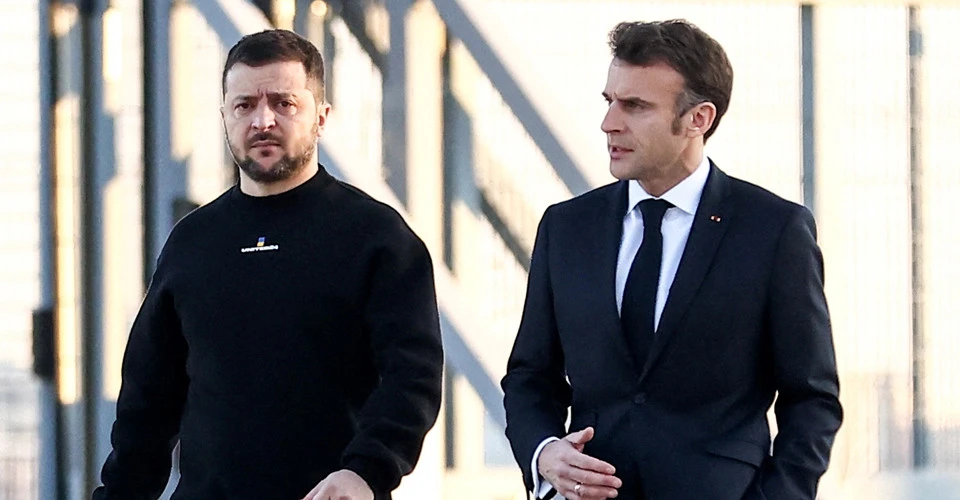
Macron open to dialogue if Russian leader reaches out to him
During his year-end news conference in December 2023, Putin complained that "at some point the French president stopped the relationship with us. We didn't do it, I didn't. He did."
Macron said he remained open to dialogue if the Russian leader reaches out to him.
"I didn't start the war unilaterally, breaking the treaties I'd agreed to. And it wasn't France that decided to commit war crimes in Ukraine, making discussions virtually impossible,” Macron was quoted as saying by Le Monde.
In an interview with Ukrainian journalists on March 16, the French leader was also asked what he would do if Putin phones him.
"Yes, I will pick up the phone. Because I feel it is my responsibility, I will listen to what he has to say. I believe that the role of France is to be the nerve of the war, as Churchill (British Prime Minister in World War II) once called it. On the one hand, we need to give Ukraine everything it needs to strengthen its defense capabilities and military equipment, but at the same time, we need to help de-escalate. We need to reach a stable, sustainable and just peace. That is why, if he suddenly wants to offer something, I will listen to the essence of his proposal," Macron emphasized.
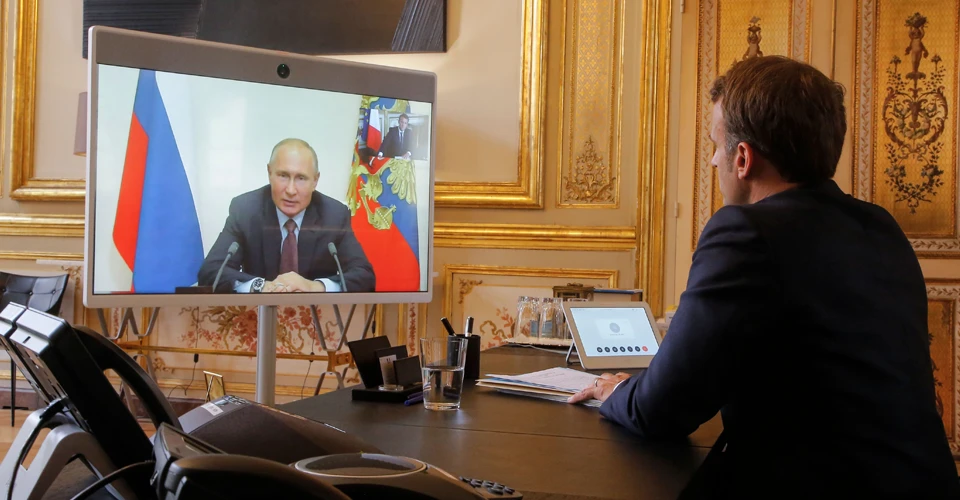
Western boots in Ukraine
Following a February 26, 2024, conference of major European countries on Ukraine aid, the French President mentioned the possibility of deploying troops to Ukraine, which astonished the allies.
"There is no consensus at this stage ... to send troops on the ground," Macron told reporters. "Nothing should be excluded. We will do everything that we must so that Russia does not win," he was quoted by Reuters as saying.
Macron’s announcement represented a shocking U-turn for a president who once suggested “not to humiliate Russia” and insisted on keeping diplomatic channels with Putin open.
Serhiy Zgurets, CEO of Ukrainian Defense Express media and consulting company, said such statement destroyed the red lines that existed in many NATO countries.
"France is not actually a leader in terms of arms supplies to Ukraine, but Macron is currently acting as a flag bearer of an extremely important idea. He is really destroying the red lines that existed in many European and NATO countries. They say our military will not operate on the territory of Ukraine," Zgurets said.
Oleksiy Melnyk, an international security expert of the Razumkov center, noted that at first the announcement was truly a bombshell.
"When he said it the first time, his statement was simply explosive. Macron's idea of sending foreign troops to Ukraine seemed provocative and completely impossible. The initial reaction was total rejection from all participants, denial. Now it's in the process of discussion, and there is already support. Apparently, it may not be such a provocative idea after all," Melnyk explained.
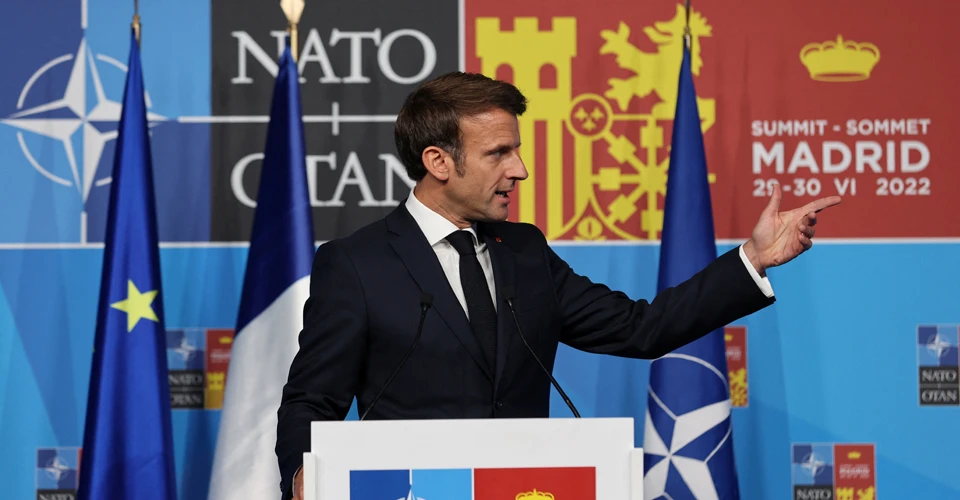
Nicolas Tenzer, a senior fellow at the Center for European Policy Analysis (CEPA) agrees. He says Macron ended the taboo on discussion, and he means what he says — the question is whether others will follow.
“On the evening of February 26, Macron declared for the first time that Russia must be defeated militarily, whereas previously he had only said that it must not win.
These remarks further hardened at the French president’s press conference in Prague on March 5, alongside his Czech counterpart, Peter Pavel. Macron stated that this was “our war”, and not just that of the Ukrainians. He accepts that Putin’s threat is aimed directly at all Europeans,” Tenzer said i his article.
As NATO countries rebuffed the French leader’s suggestions, Macron called on the allies “not to be cowards” in the defense of Ukraine.
The comment was perceived as a jab at Berlin and chancellor Olaf Scholz, who is unwilling to send Ukraine long-range Taurus missiles. Macron said later that Germany had not been the target of his remarks, but that it was “necessary to shake up” France's allies.
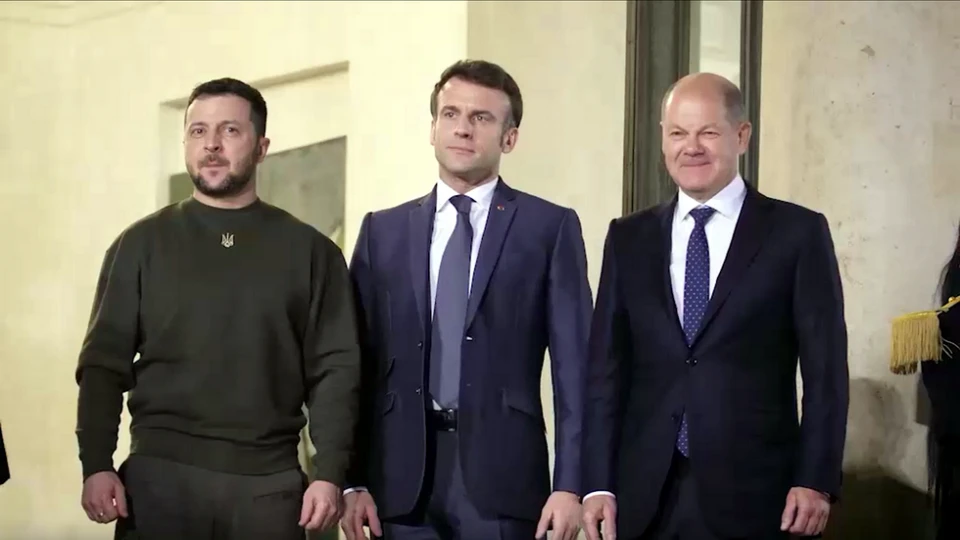
Reasons behind the transformation
In a live interview on French national television TF1 and France 2 on March 14, Emmanuel Macron again declined to rule out Western ground operations in Ukraine.
"We’re not in that situation today," he said, but added that “all these options are possible.”
Explaining the change of his rhetoric, he pointed out two reasons: all efforts to reach out to the Kremlin have been exhausted, and the Russians had now escalated their aggression to a new level.
The British newspaper The Telegraph spoke to several sources, including in the Elysee, to analyze the reasons. One of them is European leadership struggle.
Germany has often argued that it does not think that France, the EU's biggest military power, is doing enough to supply arms to Ukraine. According to the Kiel Institute’s Ukraine Support Tracker, France ranks 14th in the world in its total commitments. Berlin's contribution of 17.7 billion euros far exceeds the 0.64 billion euros supplied by Paris in military support.
Moreover, Russia’s invasion has prompted a major shift in German defense policy. Germany also initiated a European anti-missile shield project using US and Israeli technology, which Paris has not joined.
“Paris sees this as German trespassing on its turf. Berlin was breaking the gentleman’s agreement that is the bedrock of the Franco-German engine. Simply put, Berlin takes the economic leadership in Europe, while Paris takes the strategic leadership,” one source close to Macron said The Telegraph. As a result, Macron was focused on reclaiming the European strategic leadership role on Ukraine.
Macron's maneuvering isn't only about making a push for leadership within Europe, but also to be regarded as the leader on Ukraine globally, particularly in the wake of a US election, the article says.
“He is saying that Europeans need to take their destiny back into their own hands, and if they need to send troops to safeguard their own destiny, they must be in a position to do so,” a Macron insider said. That is in sharp contrast to Scholz, who believes Europe should follow US leadership.
An Elabe poll showed 79 percent of the public would oppose French troops fighting in Ukraine, but 52 percent support soldiers being sent to carry out support functions. While the Ifop polling company said there was a “progressive erosion of support for the Ukrainian cause”.
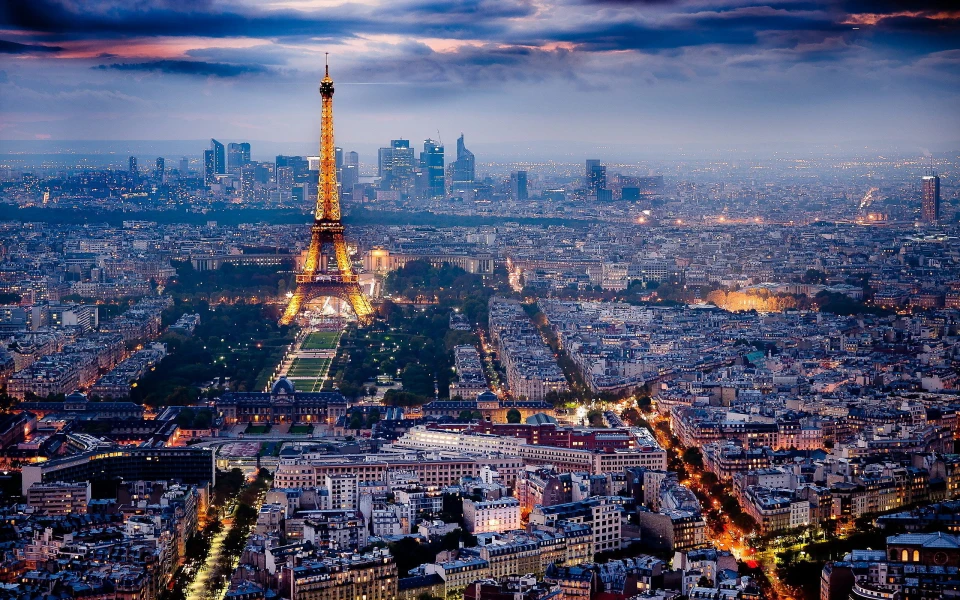
This is another reason why Macron decided to “shake things up”.
The French president also fears that Russia will not be satisfied by occupying Ukraine, and that Europe would be sleepwalking into disaster if it allows Ukraine to lose the war.
How the situation may play out
To describe the acceptable range of political discourse in a society, late political scientist Joseph Overton invented a concept which after his death became widely known as the Overton Window. The essence is that politicians are limited in what ideas they can support, these policies lie inside the Overton Window.
But the Overton Window can expand, broadening the number of ideas politicians can offer without risking their support. That’s exactly what Emmanuel Macron did — by his carefully considered statement about European troops for Ukraine, he had expanded Europe’s Overton Window, making a shift in Ukraine military policy totally acceptable.
This was clearly shown by the remarks that followed. Putin has resumed his threats and said Russia is prepared for a nuclear war if the Western army comes to the Ukrainian battlefield. The Russian leader boasted that his nuclear forces were on “constant alert”.
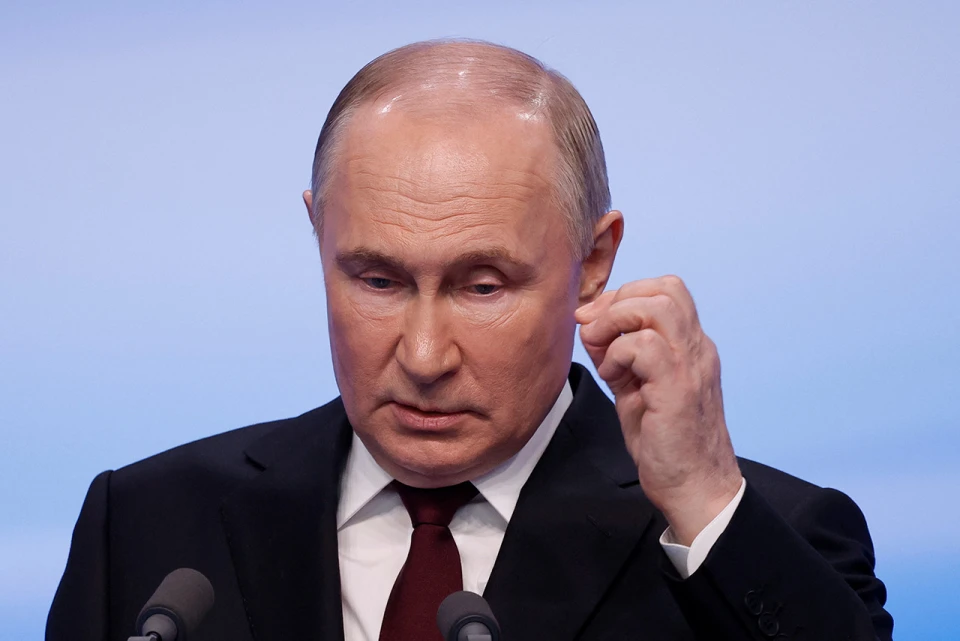
The warning was meant to deter the French leader and the West, but instead Macron, in a retort to Putin, has declared his nation 'ready' to use nuclear weapons.
“We must first and foremost feel protected because we are a nuclear power. We are ready; we have a doctrine (for the use of nuclear weapons - ed.),” Macron told reporters.
There is another aspect of Macron’s new harder stance on Moscow — Europe is preparing for a Trump presidency. The Republican front-runner has repeatedly said that Europe must do much more for its own security interests, and even threatened to withdraw America from NATO.
“This is a European war, it’s our soil and our continent. We’re determined to do whatever it takes for as long as it takes,” Macron said, pushing Europe to do more for Ukraine as US aid dwindles.
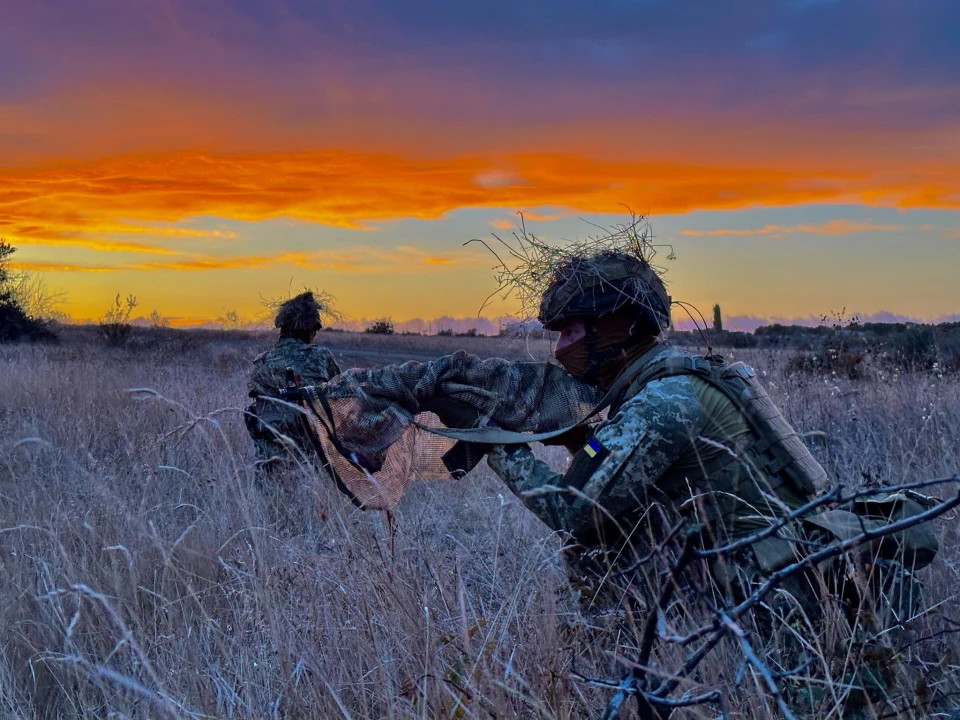
In an op-ed published by Le Monde on March 19, General Pierre Schill, France's ground forces chief, said his forces are "ready" if called upon. So far, some NATO nations are discussing sending forces into Ukraine only in training and advisory roles. But the French Foreign Legion could be an option.
Protecting France's interests outside of France is a direct task of the Foreign Legion. And France's interests are now fully aligned with Ukraine's. Why the French Legion is not deployed in Ukraine is a matter of a political decision.
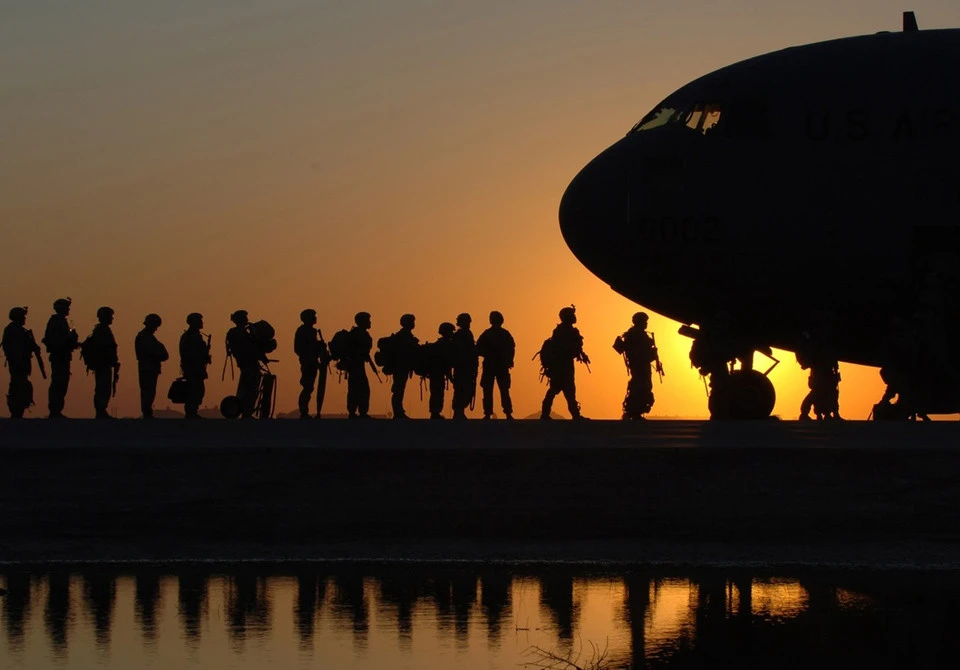
Before Russia's full-scale invasion of Ukraine, about 700 Ukrainians served in the 9,500-strong Foreign Legion. Some of them returned home to defend the country. But Ukraine needs more professionals. The head of the French Foreign Legion since the summer of 2023 is an ethnic Ukrainian, 66-year-old Kyrylo Yushchenko.
So anything can happen.
- News












































